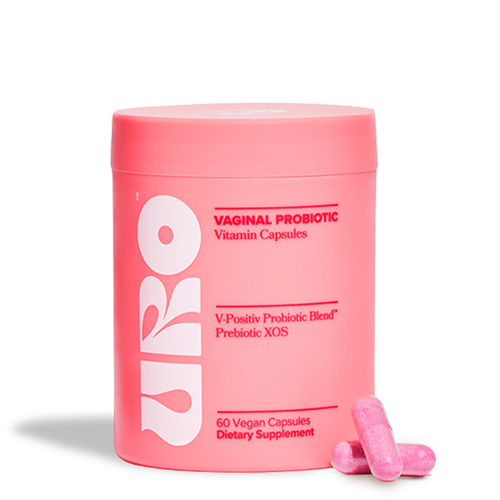If you’ve ever faked an orgasm during sex, you’re far from alone. According to a 2019 study, 58.8% of female respondents reported having faked an orgasm at least once. Cue the Meg Ryan “When Harry Met Sally” deli scene….
So what’s the deal? Are we all out here having mediocre sex? Why do we feel the need to fake it? Let’s pull back the sheets on why this is and what we can do to have better sex and more frequent orgasms.
What is an Orgasm?
An orgasm is one of the four stages of the body’s sexual response cycle—the peak of sexual arousal that causes intense feelings of pleasure. This typically occurs after stimulation of genitals and erogenous zones, which can include ears, nipples, and inner thighs among many others.
The other stages of sexual response include desire (libido), excitement (arousal), and resolution, which happens after orgasm.
An orgasm can occur during sex with a partner, or on one’s own with masturbation.
“Scientific understanding of the female orgasm is an ongoing area of research, but we know that both physiological and psychological factors are involved,” says Dr. Tyler Lloyd, OB-GYN. “It typically begins with arousal, during which blood flow to the genital area increases to cause the clitoris to swell and become more sensitive. The clitoris plays a central role in the female orgasm. It has over 8,000 nerve endings, which are highly sensitive to sexual stimulation.
As stimulation of these and surrounding nerve endings continues, muscle tension builds up throughout the body. This leads to a climax characterized by rhythmic contractions of the pelvic muscles, which are accompanied by the release of endorphins—peptides that provide the sense of pleasure and satisfaction.”
“Orgasm is not necessary for human reproduction, however, it is integral to human sexuality as it fosters emotional and physical bonding,” says Dr. Lloyd.
Benefits of an Orgasm
Orgasms not only feel good, they’re also incredibly good for you. All the more reason to have them! Here are a few ways they benefit you, both mentally and physically:
- Positive impact on hair & skin health because of increased estrogen levels
- Strengthened pelvic floor muscles
- Uplifted mood, happiness, and overall self-esteem resulting from the release of oxytocin, dopamine, endorphins, serotonin, and prolactin
- Boosted immune system and better sleep thanks to increased blood flow and brain function
Why Do Women Fake Orgasms?
So if orgasms really seem to have no downside, why do women fake them?
Luckily, of the more than half who reported having faked an orgasm in the past, 67.3% of those said they no longer did. There is hope!
There are several primary reasons why women feel the need to fake it:
To Protect a Partner’s Feelings
One of the most common reported reasons for faking an orgasm was because women did not want to hurt their partner’s feelings. Of those surveyed, 42.4% named this as a primary concern.
Not Comfortable Communicating
Many women just aren’t comfortable talking to their partners about sex. More than half (55.4%) wanted to have the conversation, but decided not to.
For 40.2% of the surveyed women, it comes down to not wanting to go into explicit details with their partners.
As with many situations, however, communication is key. According to the same study, greater sexual satisfaction was associated with more comfortable sexual communication.
Feelings of Embarrassment
Other women (37.7%) are embarrassed that they aren’t orgasming, so they fake it instead.
Why Can’t Some People Orgasm?
While it’s completely normal to struggle with orgasming from time to time, about 10-15% of women have never experienced orgasm. This doesn’t mean they never will, though there are certain conditions that can prevent and seriously limit a woman’s ability to do so (additional reading: anorgasmia).
Some surveys suggest that even if women are orgasming, about half of them aren’t satisfied with how often it happens.
At times like these, it’s good to zoom out and restrategize. Only 18.4% of women say they can orgasm from intercourse alone. This is where the clit comes in, with 36.6% of women reporting that clitorial stimulation is needed for them to climax, and another 36% say that while the clit isn’t strictly necessary, their orgasms feel better when the clit is involved.
Both relationship status and sexual orientation can have an impact on a woman’s ability to orgasm, as well.
Relationship length can impact your sex life. So while that one-night stand might be fun, it’s probably not going to be as satisfying as partnered sex between two people who have had time to understand the other’s wants and needs.
It is reported that women in relationships for at least six months are more than six times as likely to orgasm during sex, compared to a first-time hookup.
Heterosexual women seem to have it worse when it comes to partnered sex. Only 65% of hetero women usually or always orgasm compared to 66% of bisexual women and 86% of homosexual women.
How to Orgasm More Easily
While it’s easy to assume most women would prefer to be able to orgasm, it’s important to note that it shouldn’t be the only goal with sex. It is possible to have a satisfying sex life without putting all the emphasis on climaxing.
“Sex that does not end in an orgasm can still be enjoyable sex, and fixation on reaching orgasm as the goal of sex may even negatively impact one’s sexual performance and satisfaction,” according to the International Society for Sexual Medicine.
As a starting point, try to take the pressure off.
“Contrary to expectations, women did not have orgasms that are more frequent by increasing their experience and practice of masturbation, or by experimenting with different partners in their lifetime,” according to a study in Socioaffective Neuroscience & Psychology.
Apparently, practice doesn’t make perfect in this situation.
Science-backed tips to increase your ability to orgasm:
“The keys to their more frequent orgasms lay in mental and relationship factors. These factors and capacities included orgasm importance, sexual desire, sexual self-esteem, and openness of sexual communication with partners.
In addition, positive determinants were:
- The ability to concentrate
- mutual sexual initiations
- partner’s good sexual techniques
A relationship that felt good and worked well emotionally, and where sex was approached openly and appreciatively, promoted orgasms,” the study reports.
Dr. Lloyd suggests taking time to explore your own body and try new things to figure out what works. “Experimenting with different forms of sexual stimulation (e.g. clitoral, vaginal, anal, etc.) can be helpful. Trying different positions, incorporating fantasy, open communication with a partner, and relaxation & stress reduction can all play roles in contributing to the experience,” he suggests.
“Unfortunately, there is no one-size-fits-all approach. What works for one may not work for another. If after this, orgasm is still difficult, seeking help from a licensed sex therapist is always a good idea.”











